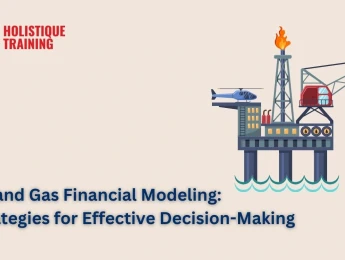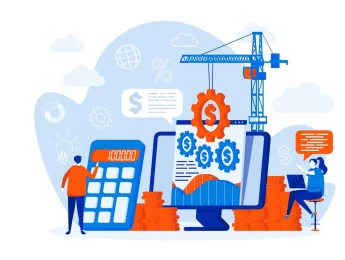The gas and oil sector is incredibly vast and expanding globally. To be successful within this sector, organisations must maximise their productivity through various means. The primary method of this is engaging in government relations.
Gaining in-depth competencies in all areas of government relations is vital for an individual with a high standing in a relevant organisation. Government relations dictate the value through exploration, production, transportation, and trading strategies. Managing government relations in these areas will guarantee that productivity will not decrease and that the environment remains safe on a physical, financial, and political level.
Not only does government relations manage internal functions, but it is also used to manage external processes. Within the gas and oil industry, developing personable and positive relationships with other organisations and stakeholders is necessary. Investments and trade come with a variety of advantages but include some risks. Effective government relations allow for ideal communication, and will aid in identifying any political risks or disputes that need to be immediately addressed.
Upon completion of this course, participants will be able to:
- Understand the importance of managing government relations within the gas and oil sector.
- Create value for a business through government relations strategies.
- Establish effective risk management, including identifying political risks, risk mitigation and contingency plans.
- Effectively plan, design, implement and monitor the performance of government relations strategic plans.
- Explore methods and tools that can help improve the ability to manage government relations in various situations.
- Examine how to synergise government relations functions with other business functions to ensure maximum efficiency.
This course is designed for anyone within the oil and gas industry who wishes to gain a more comprehensive understanding of government relations to incorporate it into their specific role. It would be most beneficial for:
- Government Relations and Public Affairs Managers
- Operations Managers
- Senior Executives
- Business Development Managers
- Business Owners
- Risk Analysts
- Risk Management Personnel
- HR Personnel
This course uses a variety of adult learning styles to aid full understanding and comprehension. Participants will review case studies of established oil and gas industry businesses to highlight government relations successes, failures, and potential improvements.
A range of learning exercises is crucial for the participants to gain a full and comprehensive understanding of the taught content. To encourage proficient learning, they will partake in seminars, group discussions, video materials, and group activities. Working individually and as a group, they can develop the necessary skills and offer and receive constructive feedback from others.
Day 5 of each course is reserved for a Q&A session, which may occur off-site. For 10-day courses, this also applies to day 10
Section 1: Introduction to Government Relations
- Defining key terms relating to government relations.
- Assessing the role of government relations within a business.
- Understanding the ethical implications of positive and poor government relations.
- Ensuring government relation functions are conducted with integrity.
- Evaluating potential risks to reputation.
- Legal influences within organisational relations.
Section 2: Political Risk and Mitigation
- Understanding what political risk is.
- Examining the agendas of different involved parties – CEOs, clients, stakeholders, and competitors.
- Methods and tools for identifying and measuring political risk – quantitative analysis.
- Establishing risk management plans detailing identified risks, mitigation methods and contingencies.
- Global issues and trends that influence political risk.
Section 3: Effective Application of Government Relations
- Exploring opportunities to globalise the organisation.
- Expanding on current business functions and using government relations to maximise productivity.
- Achieving successful merging or acquisition.
- Obtaining the licence to operate – sustainable relations with government and communities.
- The vitality of ‘win-win’ solutions and using diplomacy to settle disputes.
Section 4: Managing Government Relations
- Essential factors to consider when planning for government relations – attitudes to change, positive and negative influences, and ensuring safe working environments.
- Effectively monitoring performance and results through various methods.
- Engaging in policy debate to guarantee the most proficient policies.
- Synergising organisational functions with others.
- Reviewing corporate social responsibility.
Section 5: Maintaining Performance
- Consistently reviewing strategies and plans to stay on track.
- Utilising government relations to encourage maximum productivity.
- Identifying areas of difficulty and tension and making the ideal steps to resolve it.
- Aligning realistic goals with government ambition.
Upon successful completion of this training course, delegates will be awarded a Holistique Training Certificate of Completion. For those who attend and complete the online training course, a Holistique Training e-Certificate will be provided.
Holistique Training Certificates are accredited by the British Assessment Council (BAC) and The CPD Certification Service (CPD), and are certified under ISO 9001, ISO 21001, and ISO 29993 standards.
CPD credits for this course are granted by our Certificates and will be reflected on the Holistique Training Certificate of Completion. In accordance with the standards of The CPD Certification Service, one CPD credit is awarded per hour of course attendance. A maximum of 50 CPD credits can be claimed for any single course we currently offer.
- Course Code IND17-104
- Course Format Classroom, Online,
- Duration 5 days














